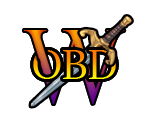Game Mechanics refers to the abilities shown in games (usually video games) that are determined by the rules of the game (shit like hit points, levels, stats, world map crossing in seconds outside cinematics, etc) and are not necessarily indicative of a character/entity’s actual abilities. For example, in many Star Wars games, a capital ship can be destroyed by repeated laser attacks from a single fighter (namely, the fighter reduced the capital ship’s HP to zero over a number of laser attacks that do such and such damage based on coding in the game’s programming). In an actual in-universe battle, however, this would be impossible as the shields would recharge faster than the fighter could damage them (HP doesn’t exist, that’s not how durability functions outside of games, you can’t chip away at something and hope to break on through if the fire power you’re packing isn’t sufficient enough. Think bullets doing minor damage to someone in gameplay where they’re more or less shown to be bullet proof. You once more can’t chip away at durability like this in real life, if you can shrug off a bullet once, you can continue to do so without the threat of a continuous number of them hitting you over an inconsistent interval in arbitrary locations).
To make a further clarification, feats need to be free from manipulation of the player. For example, getting a marginally faster attack speed by button mashing or by manipulating distances to get the highest speed are instances usually considered game mechanics.
Game mechanics are considered non-canon in the OBD, and using them in an argument is considered fallacious.
In recent years, it seems like numerous individuals have forgotten this basic meaning and arbitrarily call shit that isn’t game mechanics, game mechanics.
And the world still kept on spinning, such is the status quo of the ODC.
